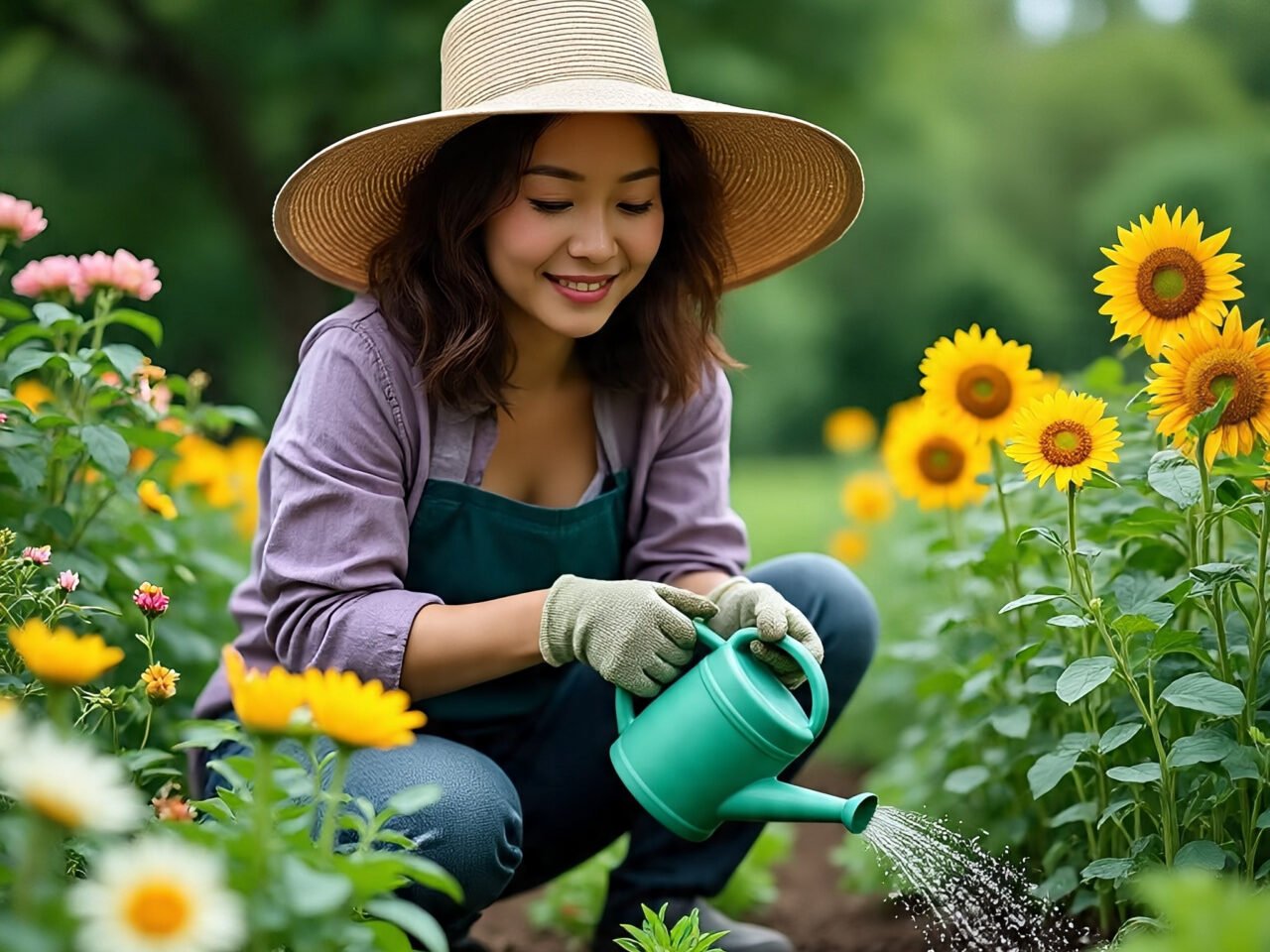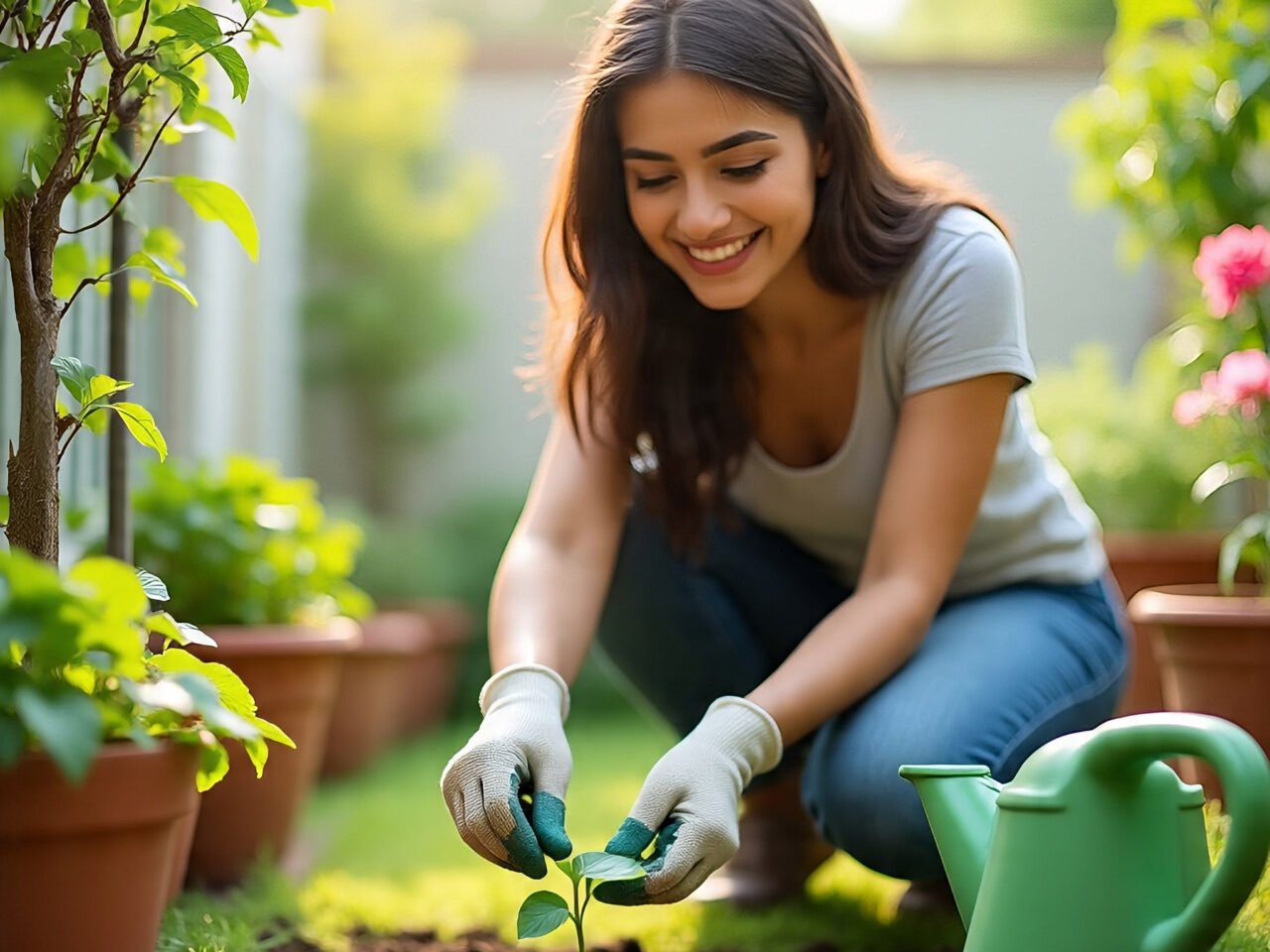In today’s fast-paced world filled with screens, deadlines, and digital distractions, finding peace can feel like a luxury. But sometimes, healing begins with something as simple as planting a seed. Therapeutic gardening — also known as horticultural therapy — is emerging as a powerful way to nurture not just plants, but our emotional well-being.
Whether you’re growing tulsi on your balcony or tending to a backyard full of herbs and flowers, gardening offers a quiet, grounding escape from the chaos of modern life.
🌼 What Is Therapeutic Gardening?
Therapeutic gardening involves engaging in gardening activities to support mental health, reduce stress, and promote emotional balance. It’s not just about cultivating plants — it’s about cultivating peace, patience, and purpose.
From sowing seeds to watching them grow, every step in the gardening process can be deeply meditative. In India, where space is often limited, even a few pots on a balcony can become a sanctuary of calm.

🧠 How Gardening Helps the Mind
Gardening is more than a physical activity — it’s a mental reset. The simple act of nurturing plants can have profound effects on your emotional and psychological well-being. Here’s how:
- Reduces Stress & Anxiety
Working with soil, watering plants, and spending time in green spaces lowers cortisol levels — the body’s stress hormone. The repetitive, calming nature of gardening helps quiet the mind and ease tension. - Boosts Mood & Happiness
Exposure to sunlight increases serotonin, the “feel-good” hormone. Watching your plants grow and thrive brings a sense of joy, accomplishment, and emotional upliftment. - Improves Focus & Mindfulness
Gardening encourages you to slow down and be present. Observing the texture of leaves, the scent of soil, and the rhythm of nature cultivates mindfulness and improves concentration. - Combats Depression
Studies show that regular gardening can reduce symptoms of depression. The combination of physical movement, fresh air, and nurturing life creates a natural antidepressant effect. - Encourages Routine & Responsibility
Caring for plants adds structure to your day. It gives you a reason to wake up, move, and engage — especially helpful for those dealing with emotional fatigue or isolation.
🌿 Real-Life Examples
- Balcony Therapy: In urban India, many people find solace in balcony gardens. A few pots of marigold, tulsi, or aloe vera can transform a concrete space into a sanctuary.
- Community Gardens: Shared gardening spaces foster connection, reduce loneliness, and build a sense of belonging.
- Gardening with Kids or Elders: It’s a beautiful way to bond across generations and teach empathy, patience, and care.
🪴 Getting Started: Your Therapeutic Garden
You don’t need a big yard or fancy tools. Start small:
- Choose easy-to-grow plants like money plant, basil, or snake plant.
- Set aside 15–30 minutes daily to tend your garden.
- Avoid perfection — embrace the process.
- Journal your gardening journey to reflect on emotional shifts.

🌞 Gardening and Mindfulness: A Daily Ritual
Therapeutic gardening isn’t just an occasional activity — it can become a daily ritual of mindfulness. As you water your plants each morning or prune leaves in the evening, you’re practicing presence. These small acts help quiet racing thoughts and anchor you in the moment.
Pair gardening with deep breathing or soft music to enhance its calming effects. Even observing the textures of leaves or the scent of soil can stimulate sensory awareness, which is known to reduce anxiety.
🌸 Final Thoughts
Therapeutic gardening is more than a hobby — it’s a gentle rebellion against chaos. It reminds us that growth takes time, care, and love. In nurturing plants, we learn to nurture ourselves. So, grab a pot, some soil, and a seed. Let your garden grow — and let your mind bloom.
Let your garden be your sanctuary. Let each plant remind you: healing is a process, and every leaf is proof that growth is possible.

Ready to start your therapeutic gardening journey? Contact us here.
